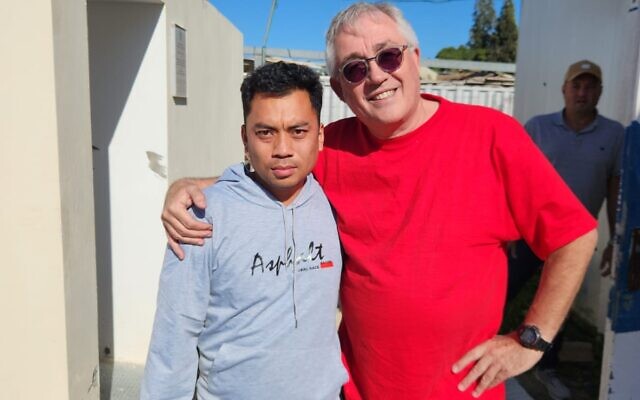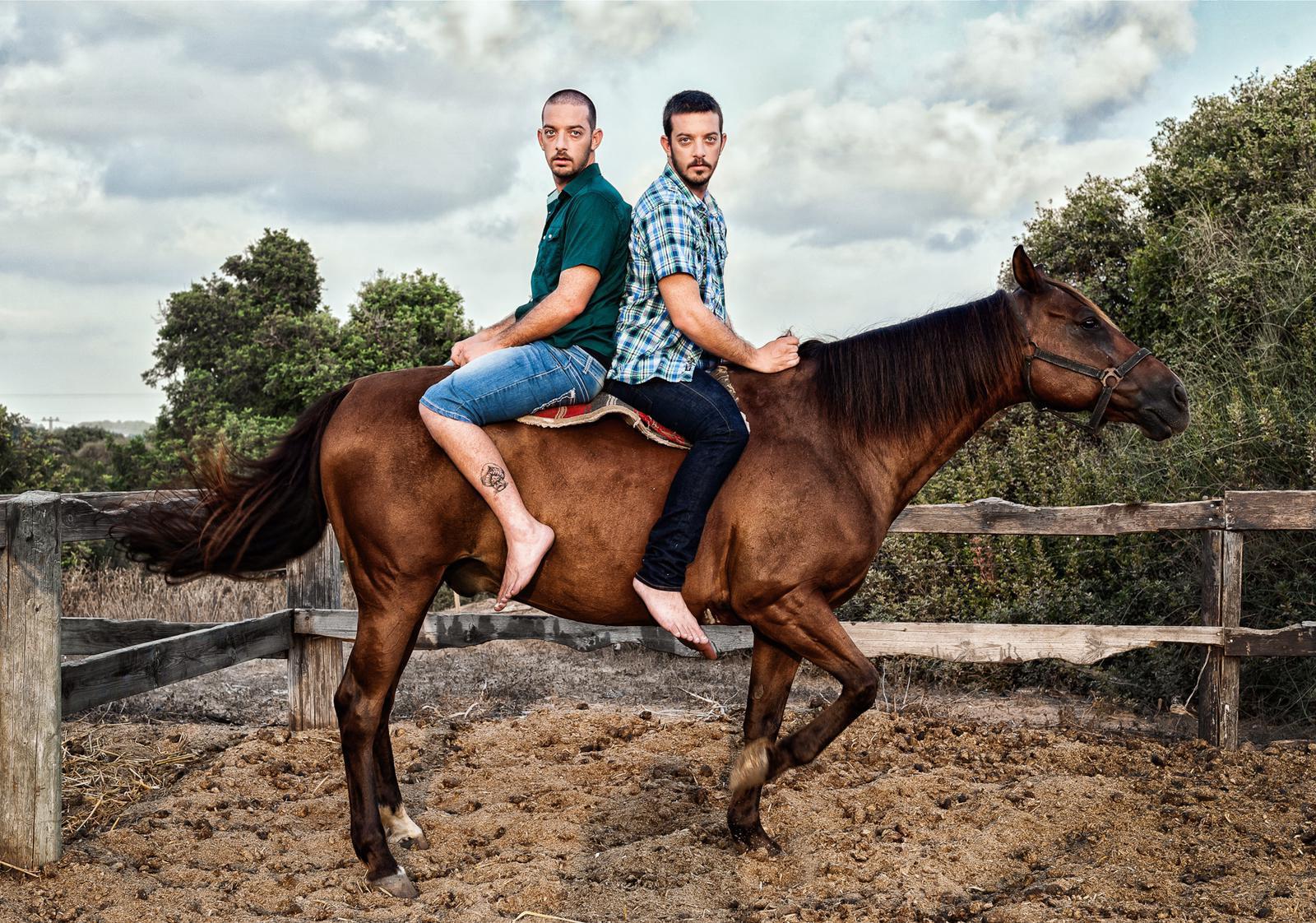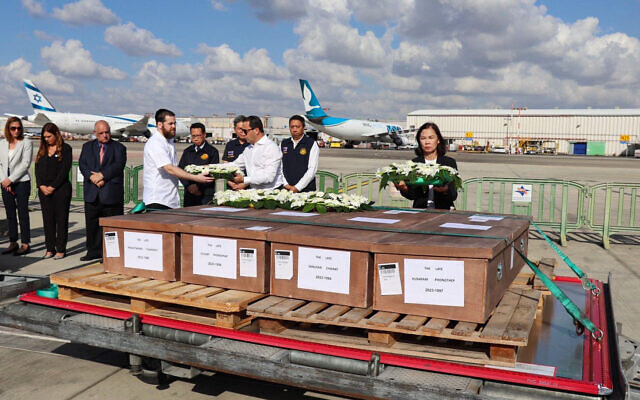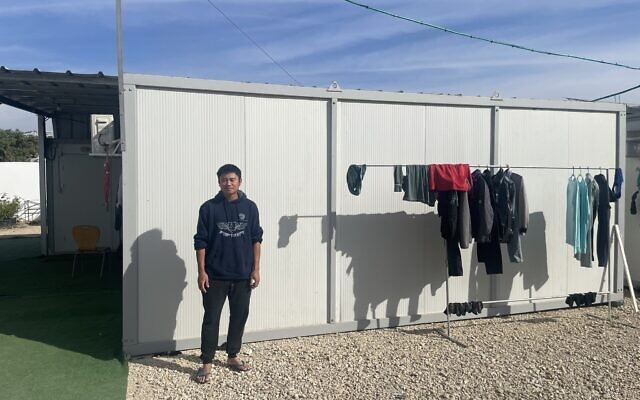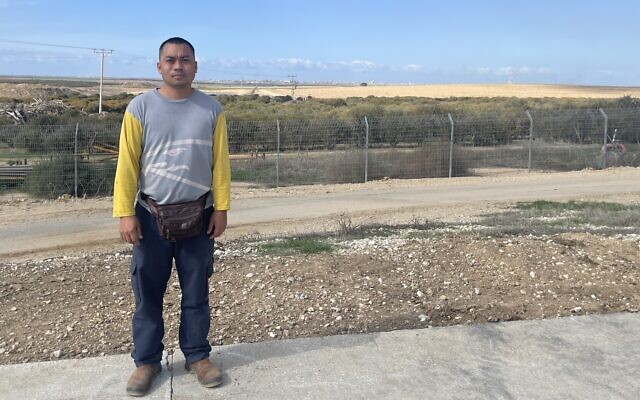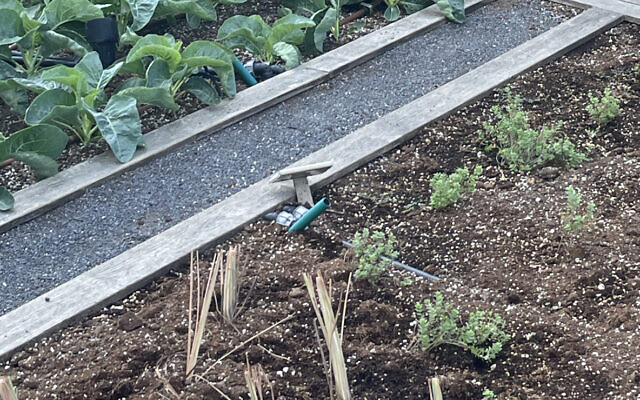


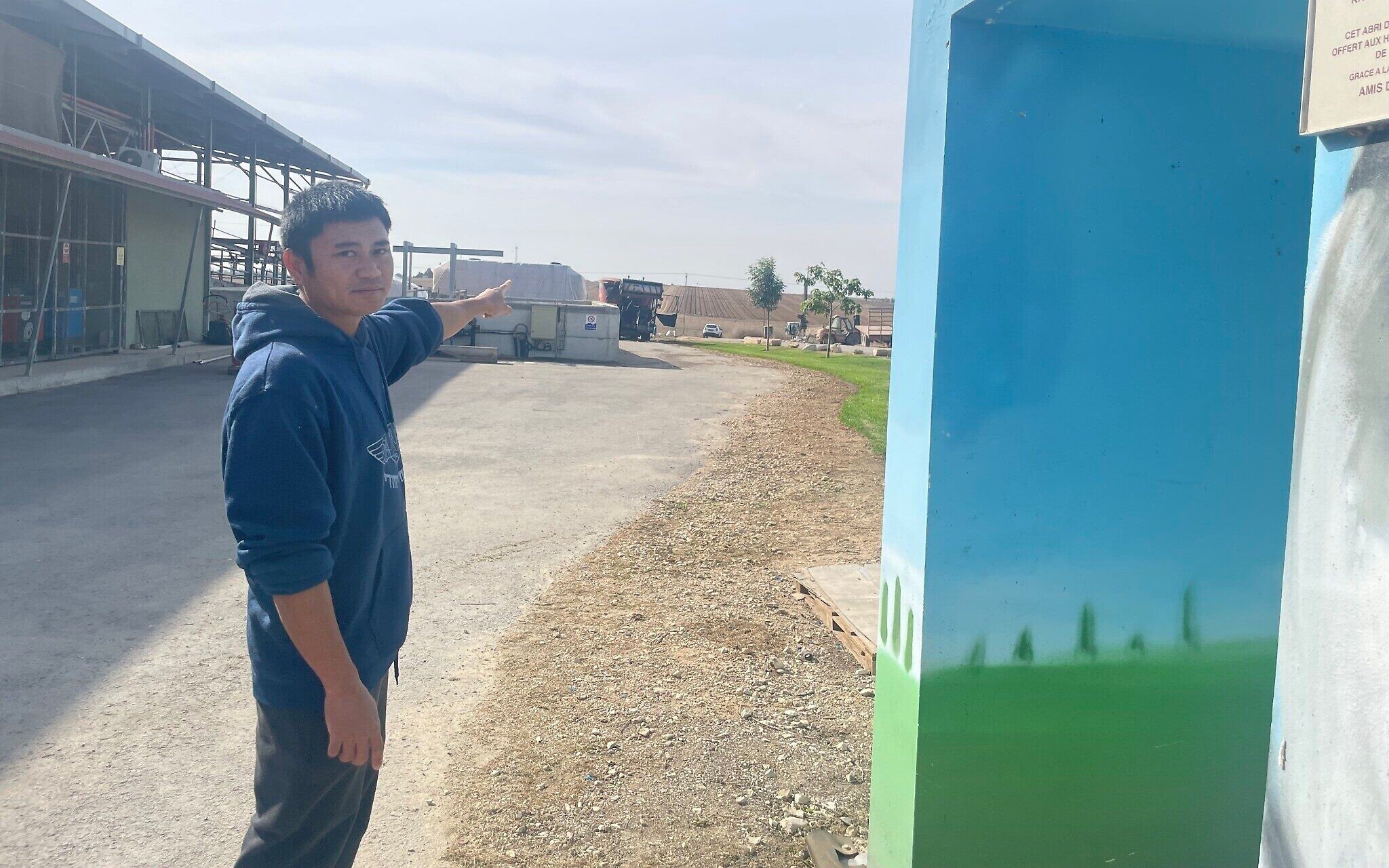
With news of eight Thai hostages possibly being freed in the coming days, Jakkrit Noiphoothorn, known as Thon, stood outside a Kibbutz Alumim chicken coop, pointed toward Gaza in the near distance, and sent a fervent wish for the hostages to come home.
“I would like the war to end because then we can do better work and sleep more peacefully,” said Thon, who has worked at Kibbutz Alumim for nearly four years.
Twelve Thai farm workers and 10 Nepalese agricultural students were killed in the workers’ living quarters of Kibbutz Alumim and four were taken captive to Gaza when Hamas-led terrorists attacked with gunfire and grenades on October 7, 2023. Some 1,200 people in southern Israel were brutally slaughtered that day and 251 were abducted.
Now, five of eight Thai hostages still being held are slated to be freed Thursday along with Israeli hostages Agam Berger, Arbel Yehoud and Gadi Moshe Mozes. One Nepalese national and one Tanzanian are also still held. The Tanzanian and two of the Thais have been declared dead by Israel.
The release is seen as a gesture of goodwill from Hamas during the newly implemented ceasefire’s first phase, whose terms include the release of 33 Israeli hostages in exchange for up to 1,904 Israel-held Palestinian security prisoners.
But for those who survived October 7 and returned to work on the kibbutz where they were attacked, the memories of that day are nightmarish.
“I don’t want it to happen again,” said Thon. “It’s always in my mind. No matter what I do, it won’t go away.”
During the massacre, Thon spoke on the phone with his kibbutz boss, Michael Huller, originally from Manchester, England, and a member of Alumim for the last 40 years. Huller was hiding in the safe room of his house on the other side of the kibbutz.
Another foreign farm worker, one of the Nepalese agricultural students, was killed while speaking to Huller on the phone.
Huller told Thon to climb out the window next to his bed and crawl into the nearby cowshed, where he hid under cow dung for 20 hours.
After being evacuated from Alumim with the rest of the kibbutz members to a Netanya hotel on October 8, and then flown home by the Thai king one week later, Thon was back at Kibbutz Alumim within three months.
“Thon came back because he has to make money and he still has his five-year visa,” said Huller. “The king paid for a ticket home, so he went home to visit. And then he came back.”
When Thon returned to Alumim, Huller was living in Netanya and returning to work at the kibbutz several times a week.
“On the first day I heard he was back, I came, we hugged, we cried together,” said Huller. “He was shaking.”
During his first days back, Thon took a wide detour each day on his way to work in the chicken coops, attempting to avoid the area of the cowshed and an adjacent garden where much of the fighting had taken place between Hamas terrorists and Alumim’s security team and outside security forces on October 7.
Thon wasn’t the only member of Huller’s team who was traumatized by the events of October 7.
One of Huller’s staff members is Eitan Cunio, a resident of nearby Kibbutz Nir Oz whose two brothers were taken captive — Eitan’s twin brother David Cunio and their younger brother, Ariel Cunio, along with Ariel’s girlfriend, Arbel Yehoud.
David’s wife and twin daughters were also taken hostage and released in November 2023. David, Ariel and Arbel all remain in captivity, and Eitan Cunio drives a white station wagon covered with pictures of his family members, including one bumper sticker that says, “I am a hostage brother.” (Arbel Yehoud is slated to be released from Gaza this week.)
Huller encouraged all his staff to start slowly and work their way back into a routine.
“When I came back I was scared, but I was the breadwinner for the family,” said Thon.
Huller now hugs Thon each time he sees him.
“Since October 7, everyone is a hugger,” he said. “Thon doesn’t like talking about the hostages — that’s partially an issue of language and culture — but he knows what happened to Eitan’s family and that puts it in perspective.”
It’s a story repeated in many of the Gaza border communities attacked on October 7. Roughly three dozen Thai workers were murdered, while some two dozen others were kidnapped during the onslaught.
Seventeen Thai farm workers were released from Gaza in November 2023 and sent home. Most of the other 10,000 Thai workers in Israel went home on airline tickets gifted them by the Thai government.
About 10 days after October 7, Michal Havivian, whose husband’s family owns an organic farm near the southern city of Ashkelon, was told by her Thai workers that the Thai king had ordered them to come home.
“They told us that with all respect, they had to listen to their families and go home,” she said.
Their work ethic and service-oriented manner made these foreign workers vital to the Israeli farming industry, said Havivian.
“They speak few words and do a lot of work,” she said. “They find honor in this work, and in following instructions.”
And yet, even after so many were killed and taken hostage on October 7, the Thai nationals in Israel are relatively unknown among the communities in which they live, partially due to language barriers and the constructs of their culture.
A Thai Embassy staffer told The Times of Israel that it would not share any details about the Thai hostages and fatalities on October 7.
Huller wasn’t surprised to hear that statement from the Thai Embassy.
“We’re friendly, I see pictures of their family on their phones, I invite them to our family events, but it’s not more than that,” he said. “We make sure they have everything, but knowing it will be over after five years.”
While speaking to several Thai workers at Alumim, usually using Google Translate on a phone, it became clear that they didn’t know the Thai workers taken hostage from other communities.
“Thailand is a big country,” said Havivian, “and there’s several dialects.”
Korawit Kaeokoed, an Alumim cowshed worker known as Kuay, hid on October 7 for hours in the drop ceiling above the storeroom where they keep the cows’ medication.
He was also evacuated to Netanya and then went home to Thailand to visit with his wife and two children before returning to Alumim several months later.
He has stayed in touch with Phonsawan Pinakalo, a fellow farm worker who was taken hostage from Alumim and then released in November 2023.
Pinkalo decided to stay in Thailand and open a store in his hometown, said Kuay.
“He says to me, ‘You are not smart to stay in Israel, you didn’t die last time but you could die next time,'” said Kuay.
“‘I said, ‘It will be okay,'” added Kuay, who speaks basic Hebrew.
“Alumim is good, the boss is good, the people are good, the work is good,” he said, stirring a pot of broth redolent with lemongrass and ginger on a stove in the simple quarters he shares with the other Thai workers. “Thailand has no work, no money. If Alumim were not good, I would not have come back.”
The living quarters for foreign workers was burned to the ground on October 7. The simple new corrugated metal structure includes a communal kitchen with at least a dozen rice cookers on the open shelves.
The lowing of the cows in the nearby shed can be steadily heard in the background along with the explosions of Israeli shelling in nearby Gaza.
Even now, said Kuay, it can be hard to be back on the kibbutz, where any sirens or sounds of explosions from Gaza can send him into a panic. When his work visa expires, said Kuay, he’ll return home to Thailand, where he plans on growing rice.
The Thai are closed and private, and they don’t like to talk about what happened on October 7, said Havivian. It can be hard to get close to them, even after years of working together.
“They don’t like to be bothered,” she said. “They are people who are under the radar.”
Havivian said that when Thais come to work in Israel, they usually offer a shortened version of their name to make it easier and perhaps to have a different identity while they’re in a foreign place. When they receive a package from home, she often has to check their passports in order to know who it is addressed to.
“It’s not because I don’t want to know, it’s just how it works,” said Havivian, who recently collaborated on a project with Tel Aviv culinary center Asif in which lemongrass was planted in the Asif urban garden project to honor their Thai workers.
“Our communication is limited, but… they’re the people who service our old people and the farms and they do all the work,” she said. “They are the backbone of the work that we don’t want to do.”

